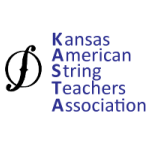
Freshly graduated, newly employed in my first real, grown-up job, I was ready to take on the world in an inner-city middle school choral position. The fall semester grand plan stirred in my head – two concerts full of quality two and three-part music, students eager and excited to perform and learn. The word wall was posted alongside positive messages and cheerful signs; musical symbols lined the walls. Then I learned the reality of my teaching situation and found myself slightly worried.
The choirs were not split by grade, and none of my classes were an actual elective; students did not pick their electives at this school, but rather were placed in them at random based on what fit their schedule. How many of these kids would actually want to be in choir? Nevertheless, I was determined to succeed. I thought to myself, “I can manage! I’ve been prepared for this by the last four years of school!”
Little did I know the next week would completely derail every expectation I’d had for my first semester as a real choir teacher. In the first week of school dozens of students had their schedules switched around three or four times, making the creation of a desperately necessary seating chart almost impossible. Classroom management was a nightmare worse than I’d ever imagined, with students wandering around, in, and out of the room, cursing at each other and me regularly, and an uncontrollable noise level that could barely be contained. On top of all of this, I had to hear multiple times daily about how these kids did not want to be in my class. They didn’t want to sing because it was stupid or because they couldn’t sing. They would rather be in art or P.E. or anywhere else. My spirits were quickly being crushed as I left school every day completely at a loss for how to make any kind of progress.
Establish Your In-Building Support System
It was sometime in the second week of school when I learned the first huge lesson of my first year: develop your in-building support system.
Having a group of people outside the building is vitally important. You need someone to turn to after a long and difficult week who can offer you encouragement and emotional support. Unfortunately, that’s where their help stays – outside. It is crucial to build a team of support within the building for those urgent moments where you really need a break or instant help. My first layer of help was the other teachers in my electives team.
As I grew closer with the art teacher next door, we began to feel comfortable airing a day’s frustrations with each other, often being able to offer the other advice or insight on a particular issue. In moments of great stress, when being in the classroom with “that one class” was too much (and every teacher has “that one class”), we would room swap for five minutes, giving us a chance for a mental break and letting the students know their behavior had reached a completely unacceptable level.
The coaches also played a huge part in my first-year survival. In a demographic where sports are one of the biggest motivators for students to behave and do well in school, having the coaches on my side was more valuable than I can express. Multiple times the coaches were able to help me sort out discipline issues with students through means of extra laps at practice, lost privileges if it affected their grade, and in one case, a solo performance in front of her basketball team as a consequence for distracting others in class instead of singing (purely the coach’s idea!).
Another large amount of support came to me from one of my vice principals, who took a special interest in helping me develop my classroom management skills after I had a particularly rough day. I asked him to come discuss the events, and that conversation led him to become a personal advocate for my classroom and policies. For the rest of the year that vice principal checked in with me regularly, always had my back in discipline situations, and made a point of giving me words of encouragement when he noticed I had made a good call or had a good teaching moment. We learn in our education classes how meaningful those comments can be for our students, but I had no idea how much I would also need some reaffirmation of what I was doing.
The final, and sometimes most important, support I received was from the office staff. We all know that these people secretly run the building, and that without them we could not accomplish most of what we do. During this first year, I learned a great deal about developing your in-building support system:
- With teachers and administrators:
- Ask for help – it won’t be seen as weakness, but rather as your willingness and desire to improve for yourself and your students.
- Volunteer for committees
- Be kind – this one speaks for itself; treat others as you hope to be treated.
- Stay positive, even when it feels impossible
- With your office staff:
- Ask for help early and often – don’t wait until the day before you need a purchase order completed to learn how to fill it out!
- Be organized; be kind; be patient – you are not the only teacher who needs the help of these wonderful individuals.
- Apologize for your mistakes; you will make mistakes – and always say thank you!
Prepare for Teacher Evaluations
One thing that is not always discussed enough in an undergraduate program is teacher evaluations. You know they are going to happen, but may not be well-versed in what the administrators are looking for specifically. While a certain model may be adopted for an entire district, every principal has his or her own idea of what “good teaching” looks like and includes. The main things I learned regarding teacher evaluations are:
- Some principals will communicate expectations and dates well; others will not – start the communication yourself, and ask questions early so you know what to expect. Your administrator will appreciate your forethought on the subject, and you won’t be caught by surprise!
- Remember that you will probably have more musical knowledge than they will, so they may base your evaluation on things like technology use and the presence of a word wall rather than how well you teach musical concepts.
Gather Information about Student Needs

Most every undergraduate education program should have some type of class that addresses teaching students with disabilities or other special needs. What you don’t learn in that class is that often, music and other electives teachers are the last to receive students’ IEPs. In my first year of teaching, I did not receive a single IEP until October. At that time, I received plans for almost half of my 135 students. All of a sudden I had a new wealth of information that explained why some students were struggling so much to understand the concepts I was teaching and why some students had so many behavioral issues. This new insight helped me adapt my instruction for particular students and start to make greater strides with them individually. In the second semester, with an entirely new batch of students, I never received IEPs. Through these experiences, I did learn a few things regarding students with special needs:
- You may not always know which students have learning disabilities or behavior disorders – just because they don’t have an IEP, does not mean disability isn’t there; some parents choose not to have their students evaluated for a variety of reasons.
- The best way to understand how to help these students is to communicate with their classroom or special education teachers – reach out to those who know the students best. They can offer suggestions on how to have productive interactions with the students based on their individual needs.
Education courses talk some about issues faced by students in today’s society, but no class can fully prepare you for some of the situations my students dealt with. Some issues are fairly universal, but demographics make a huge difference:
- Lack of clean school uniforms – some students had one to two shirts to get them through the week.
- Lack of basic school supplies – less than ten percent of the students brought backpacks to school. Many were lucky if they brought a pencil every day.
- Gang affiliation – middle school students with older siblings or relatives were being brought into the gang life style at thirteen and fourteen years old.
- Finance based low self-esteem
- Family instability and frequent change in residence
- Absent or negligent parents and guardians – a student may technically live with an adult, but it does not guarantee she is being cared for and guided by an adult.
- Foster care and shelter home students – there is little more heartbreaking than a student asking if you will adopt him so he doesn’t have to keep jumping around foster homes.
- Pre-teen pregnancy – it seems too early; these are kids, right? But it is real, and it is happening.
- Suicide attempts
These situations are more prevalent in low socio-economic schools, and happen far more than anyone would like them to. They are scary and uncomfortable, especially to an inexperienced teacher. Because of the emotional vulnerability of the art form, music teachers are sometimes the best liked teachers in a school, with a certain group of kids who gravitate towards them and their classrooms as the ‘safe place’ in the school. As I began to develop good relationships with my students, my classroom became one of those safe places. Students would come to me with personal issues, social issues, and other “gossip” which often was information an administrator or counselor needed to know in order to neutralize a situation where a student might cause harm to himself or others. I both loved and hated it, appreciating that the students trusted me to use the information in a helpful way, but hating that I had to be the person to bring these conversations to my principals, a scary task for a young teacher with little idea how to handle the situations.
Being a Life-Long Learner
My school prepared me exceptionally in how to design lesson plans, musical activities and methodologies, teaching strategies for students of different learning levels, effective rehearsal planning and conducting, musical performance and technique. Some lessons I had to learn for myself:
- Understand and remember that your class is not the only class or issue a student is struggling or dealing with.
- Care about their lives and what they care about.
- Be aware of the line between a teacher and a friend. (This is especially hard as a young teacher.)
- Do not argue back; if you do, you’ve already lost.
- Show your students that you are also a person – you care and have feelings just like they do.
- Hit restart every day; do not hold on to the bad things that happened yesterday.
As difficult as this is, I think it may be the most important in building trust with your students. If you expect them to be awful today like they were yesterday, they will meet your expectation because you’ve not challenged them to do otherwise. If you start the day fresh, you’re showing them an opportunity to be better. Many teachers do not give them that opportunity, and it will make you stand out to students.
Respect is Earned, Not Automatic
Some students are taught at home that you respect the adult in the room, no matter what. This is becoming less common, and some parents even believe it is the job of teachers at school to help students develop social and behavioral skills and habits. In most low socio-economic school settings, the main form of currency is not money, but respect. Students demand it because it is one of the only things they can have for free and feel they can control in chaotic and often complicated lives. They feel entitled to respect, but do not grant it to adults “just because they are adults”. Many of these students have been chastised, reprimanded in excess, and ultimately let down by most adults in their lives. I learned that if I wanted my students to respect me, I would have to earn it through building a foundation of trust and good rapport:
- Treat students their age, even when they don’t act it – don’t be afraid to tell students when they are acting immature, but say it in a way that simply invites them to change the action; most kids do not want to be perceived as younger.
- How you speak to them matters – tone, volume, and language will all impact how students hear you and their willingness to listen.
- Ask before you accuse – students can have reasoning for their actions that makes no sense to us, but is perfectly logical to them. Rather than immediately prosecuting, ask a student if and/or why he made the poor choice he did, then have a conversation about why it wasn’t a great decision.
- Do not assume you know what’s wrong; make an effort to find out and offer support – some students just simply need to the opportunity to be heard.
Finding Solutions in the Choir Classroom
So what happens in a choir classroom where the students are largely resistant to the subject and are openly vocal about not wanting to be there? For my own sanity, I gave up quickly on the notion that we would sing and rehearse every single day (because you can only hear “I don’t like to/don’t want to/cannot/will not sing” so many times in one school week).
First I decided we should address the fact that most of my students did not even understand what a quarter note was, so I began incorporating basic musical literacy concepts like note values, dynamics, and tempo. I found ways to incorporate movement and sometimes a little healthy competition to motivate students, and when they complained, I reminded them that I was meeting them halfway by not asking them to sing that day. Students began to come around to this.
The next challenge was finding a way to connect between their idea of music and mine. At the beginning of the year, several told me they didn’t like music, but I would see these same students in the hallway singing or listening to music from headphones. When I called them on it, they told me, “No Ms. Thomas, that isn’t the same as YOUR music.” In their minds, there was a complete disconnect between popular radio music and music in a classroom. I started teaching music history lessons on rap, hip hop, jazz, Motown, and anything else that could spark their interest and help them see where ‘their’ music had originated, and the connections it had to music we practiced in class.

The last and most challenging hurdle was convincing the students to open their mouths and let sound come out. Some students went an entire semester without singing a note. With these students, I reminded myself what smarter teachers had told me – you can’t save them all. But most in my classes eventually came around due to persistence, persuasion, and very deliberate repertoire choices.
Did we sing songs that most choral directors would label quality choral literature? Absolutely not. Were the majority of our concert programs comprised of popular music? Yes. Did I love hearing those songs over and over? No. Did most of my students sing in the concert at the end of each semester? YES, and many told me afterward they were surprised by how much they enjoyed it!
The undergraduate education program teaches a wealth of information in its 120-130 credit hours of work; even that is not enough time to teach a new teacher everything she will encounter in the first year. Mine was a year full of trial and error. I went home several days wondering if I would make it to the end of the year. I did make it, and still today am happily in touch with many of my students from that year. It was not the musically stimulating year I had expected at the beginning, but I know a great amount of learning happened, for both my students and me. They learned how to take a risk and try something that scared them; I did too. They learned about cultures and walks of life very different from their own; so did I. We learned as a group, challenging each other the whole way through, and we all came out the other side closer, stronger, and better for it.























